Ten things to expect when renting an apartment in Spain
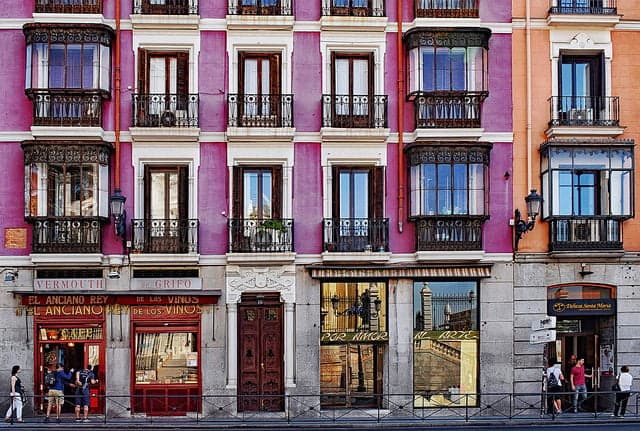
There are some common matters involved in renting a place in Spain that many foreigners find suprising. Here are ten important factors you need to keep in mind when looking for and securing your dream apartment in Spain.
Looking to move? Find your next rental apartment here.
Depending on where you are in Spain, the difficulty of finding an apartment to rent can vary, but wherever you choose to live, there are some things that you might find surprising when renting, especially as things are done differently here than in other countries. So, here's a heads up on ten important things you need to keep in mind when looking for and securing your dream apartment in Spain.
Prices are based on total square meters
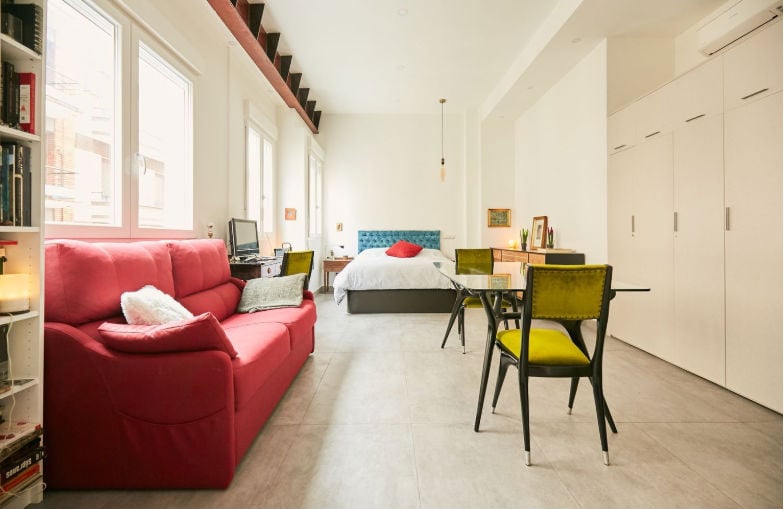
Photo from advert on Idealista.com
If you are not used to the metric system, it can be daunting to try and figure out how big an apartment is- particularly if you start by looking online. If you are accustomed to square feet, you can convert an apartment from square meters to square feet by multiplying the size by 10.764.
But that’s just the beginning! The most important thing to keep in mind is that prices are based on metros construidos (total square meters). This includes:
-
All the space within the perimeter of the property
-
Your share of the total square meters of the common areas.
For example, suppose you find an apartment online that is listed as 90 square meters, but the listing includes a 10 square meter share of a common area. If you don’t realize this, you might be in for a shock when you see the apartment and it is over a hundred square feet smaller than you expected because the published size included those 10 square meters of common space.
It’s also important to note that apartment sizes in Spain often appear overstated because the total square meter measure includes unusable space such as the walls, ventilation spaces and ceilings.
A simple rule of thumb is that there is a 10-15 percent difference between total and usable square meters.Read more about how to measure and compare Spanish apartment sizes.
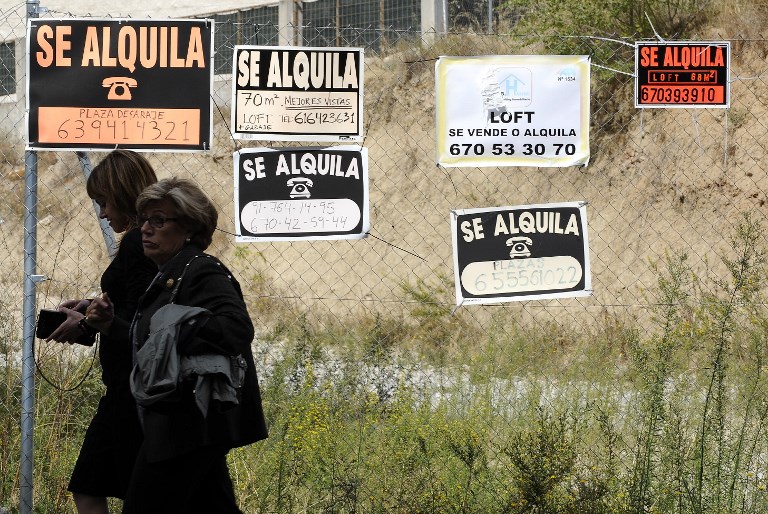
Photo: AFP
Utilities are typically not included in the rent- this includes water
You should expect to pay for your power, gas, water, phone and internet. You might even have to pay for trash removal. On average, you should budget for the following:
-
Studio or 1 bedroom apartment: 100€ on average
-
2 bedroom apartment: 150€ on average
-
3+ bedroom apartment or house: 200€ on average, leaning towards 300€ for houses
Prices can be higher if you opt for fast fiber optic internet (often packaged with lots of premium TV channels) and frequently use air conditioning.
READ MORE: Tenant or landlord: Who pays which costs in Spain?
Utility bills are often left in the landlord’s name
This comes as a surprise to many expats. Some unscrupulous landlords might even take advantage and charge you extra, but this is usually smaller players. Because it is illegal, landlords that own multiple properties are typically better versed in the law and are more scrupulous in this respect.
Regardless, it is still common practice for landlords to keep the accounts in their name and send you a bill for your share. If you wish, you can get companies like Iberdrola to put contracts in your name but it takes some perseverance and you will often have to pay a fee to get them changed.
Read more about utility bills and the extras and surprises to avoid.
The good news is rent is usually exempt from IVA (VAT)
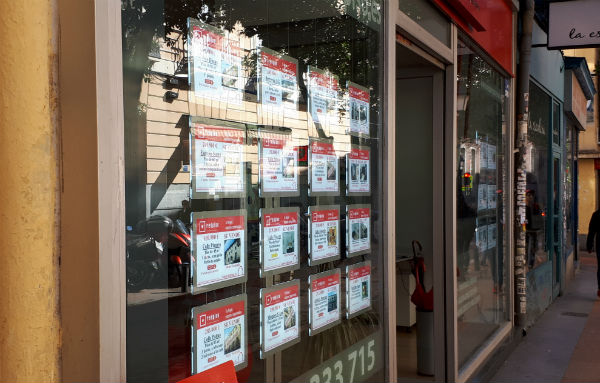
Photo: Fiona Govan /The Local Spain
Usually, rents are not taxed. This is a relief as Spanish IVA (the equivalent of VAT in the UK or sales tax in the US) is 21 percent.
The exception to this is if you are planning on using part of your apartment as a home office and you have clients in Spain that you bill more than 4,000€ per year.
If this is the case, landlords are supposed to charge you 21 percent IVA. Although this is technically true, it is rarely done as most landlords don’t want to deal with the administrative hassle and the Spanish tax office usually can’t track it unless you are audited.
Short term rentals (anything less than a year) do not give tenants nearly as many rights as long term rentals
In fact, in the past landlords tried to get tenants to sign eleven month contracts to give themselves maximum protection. Fortunately, those days are over. Even if you have signed an eleven month contract, the courts will consider it a long-term contract if you have been living in the place daily, you have engaged wifi/telephone services, etc.
Tenants are responsible for regular wear and tear on the apartment and basic upkeep
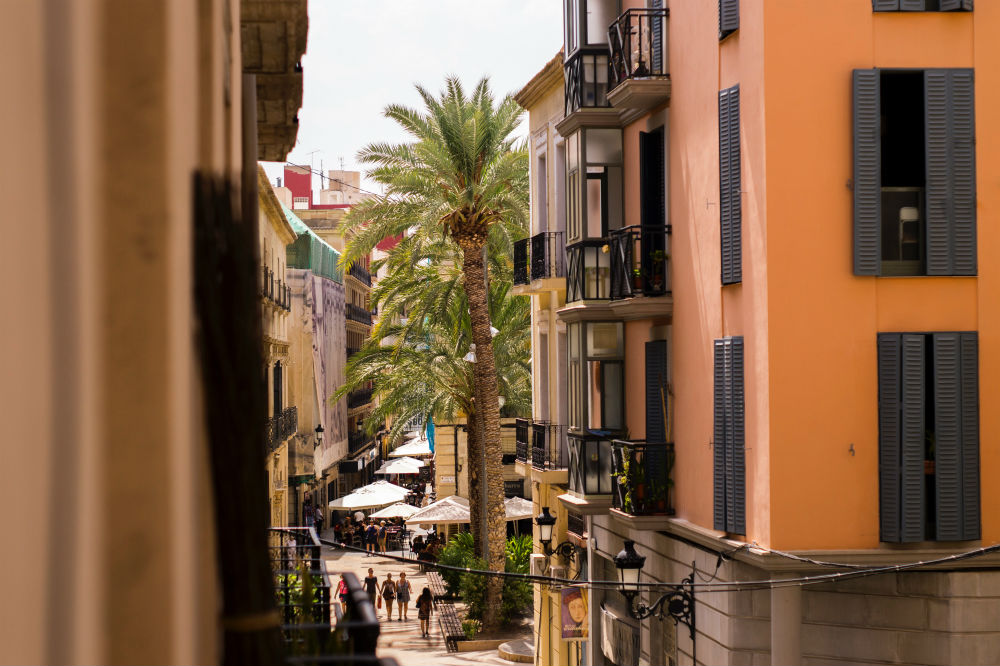
Photo by Julian Dik on Unsplash
This can come as a shock for people accustomed to renting in other countries. Some landlords are more generous than others about making basic repairs, but legally you are responsible for things like adding a fresh coat of paint, fixing broken door knobs and electrical outlets.
Negotiation can be a delicate matter
People often lump Spain and Italy into the same group. Negotiating for an apartment in Italy is common and expected. Spain is different. You can do so, but you need to be very sensitive when you negotiate. Landlords can become very emotional if you negotiate abruptly or ask for too big of a discount. We recommend asking for a 10% discount but accepting 5%. In cities such as Madrid where rental apartments are in high demand, you might not get a discount at all.
READ ALSO:
- Renting in Spain when you have a pet: What are my rights?
- Why you should negotiate lower rent in Spain in 2021 (and how to do it)
Security deposits may vary
Legally, landlords can only charge you the equivalent of one month’s rent for an unfurnished apartment and two month’s rent for a furnished apartment. However, many ask for more- some up to six months. On average, for top quality apartments, expect to pay a security deposit equivalent to three months rent.
Think about the noise level at night
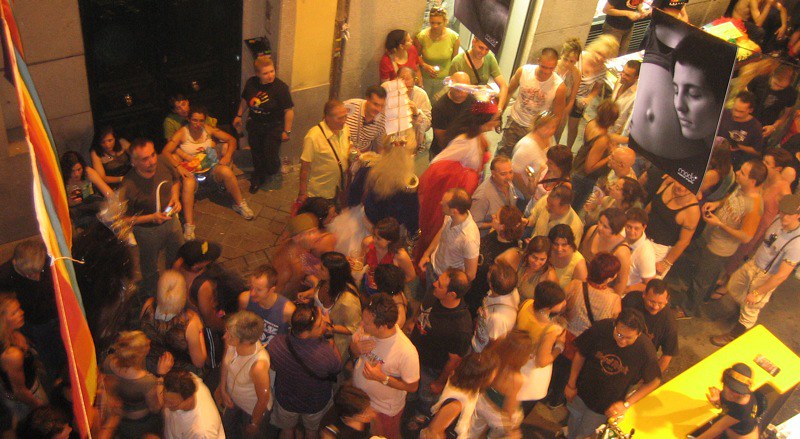
Photo: punki/flickr
Spain has a reputation as a party country and it is well deserved. Many people are attracted to the country for this reason, but end up regretting their decision the first Thursday they sleep in their new apartment. Before you rent a property, we recommend you check out the street at night. It is also a good idea to ask your future neighbors about noise at night. Madrid has after hours clubs (even in otherwise quiet neighborhoods) that open at 5 or 6 am. So even if your street seems quiet during your late night check, you could be in for a surprise.
Old buildings can be quirky
Part of the appeal of renting an apartment in Spain is living in a beautiful, historic property. However, the reality often doesn’t live up to the fantasy. Even well maintained old buildings (and many of them aren’t) can have poor water pressure, few electrical outlets, plaster that frequently cracks, archaic plumbing and even leak when it rains.
READ MORE: The survivor's guide to renting in Madrid
Mary Clare Bland is a relocation expert with Moving2Madrid, a buyer's agent that focuses exclusively on the Madrid market. "We help international buyers locate, negotiate and close the deal on apartments in Madrid. We work with renters, buyers and investors. We focus exclusively on an international clientele and speak multiple languages."
Comments
See Also
Depending on where you are in Spain, the difficulty of finding an apartment to rent can vary, but wherever you choose to live, there are some things that you might find surprising when renting, especially as things are done differently here than in other countries. So, here's a heads up on ten important things you need to keep in mind when looking for and securing your dream apartment in Spain.
Prices are based on total square meters

Photo from advert on Idealista.com
If you are not used to the metric system, it can be daunting to try and figure out how big an apartment is- particularly if you start by looking online. If you are accustomed to square feet, you can convert an apartment from square meters to square feet by multiplying the size by 10.764.
But that’s just the beginning! The most important thing to keep in mind is that prices are based on metros construidos (total square meters). This includes:
-
All the space within the perimeter of the property
-
Your share of the total square meters of the common areas.
For example, suppose you find an apartment online that is listed as 90 square meters, but the listing includes a 10 square meter share of a common area. If you don’t realize this, you might be in for a shock when you see the apartment and it is over a hundred square feet smaller than you expected because the published size included those 10 square meters of common space.
It’s also important to note that apartment sizes in Spain often appear overstated because the total square meter measure includes unusable space such as the walls, ventilation spaces and ceilings.
A simple rule of thumb is that there is a 10-15 percent difference between total and usable square meters.Read more about how to measure and compare Spanish apartment sizes.

Photo: AFP
Utilities are typically not included in the rent- this includes water
You should expect to pay for your power, gas, water, phone and internet. You might even have to pay for trash removal. On average, you should budget for the following:
-
Studio or 1 bedroom apartment: 100€ on average
-
2 bedroom apartment: 150€ on average
-
3+ bedroom apartment or house: 200€ on average, leaning towards 300€ for houses
Prices can be higher if you opt for fast fiber optic internet (often packaged with lots of premium TV channels) and frequently use air conditioning.
READ MORE: Tenant or landlord: Who pays which costs in Spain?
Utility bills are often left in the landlord’s name
This comes as a surprise to many expats. Some unscrupulous landlords might even take advantage and charge you extra, but this is usually smaller players. Because it is illegal, landlords that own multiple properties are typically better versed in the law and are more scrupulous in this respect.
Regardless, it is still common practice for landlords to keep the accounts in their name and send you a bill for your share. If you wish, you can get companies like Iberdrola to put contracts in your name but it takes some perseverance and you will often have to pay a fee to get them changed.
Read more about utility bills and the extras and surprises to avoid.
The good news is rent is usually exempt from IVA (VAT)

Photo: Fiona Govan /The Local Spain
Usually, rents are not taxed. This is a relief as Spanish IVA (the equivalent of VAT in the UK or sales tax in the US) is 21 percent.
The exception to this is if you are planning on using part of your apartment as a home office and you have clients in Spain that you bill more than 4,000€ per year.
If this is the case, landlords are supposed to charge you 21 percent IVA. Although this is technically true, it is rarely done as most landlords don’t want to deal with the administrative hassle and the Spanish tax office usually can’t track it unless you are audited.
Short term rentals (anything less than a year) do not give tenants nearly as many rights as long term rentals
In fact, in the past landlords tried to get tenants to sign eleven month contracts to give themselves maximum protection. Fortunately, those days are over. Even if you have signed an eleven month contract, the courts will consider it a long-term contract if you have been living in the place daily, you have engaged wifi/telephone services, etc.
Tenants are responsible for regular wear and tear on the apartment and basic upkeep

Photo by Julian Dik on Unsplash
This can come as a shock for people accustomed to renting in other countries. Some landlords are more generous than others about making basic repairs, but legally you are responsible for things like adding a fresh coat of paint, fixing broken door knobs and electrical outlets.
Negotiation can be a delicate matter
People often lump Spain and Italy into the same group. Negotiating for an apartment in Italy is common and expected. Spain is different. You can do so, but you need to be very sensitive when you negotiate. Landlords can become very emotional if you negotiate abruptly or ask for too big of a discount. We recommend asking for a 10% discount but accepting 5%. In cities such as Madrid where rental apartments are in high demand, you might not get a discount at all.
READ ALSO:
- Renting in Spain when you have a pet: What are my rights?
- Why you should negotiate lower rent in Spain in 2021 (and how to do it)
Security deposits may vary
Legally, landlords can only charge you the equivalent of one month’s rent for an unfurnished apartment and two month’s rent for a furnished apartment. However, many ask for more- some up to six months. On average, for top quality apartments, expect to pay a security deposit equivalent to three months rent.
Think about the noise level at night

Photo: punki/flickr
Spain has a reputation as a party country and it is well deserved. Many people are attracted to the country for this reason, but end up regretting their decision the first Thursday they sleep in their new apartment. Before you rent a property, we recommend you check out the street at night. It is also a good idea to ask your future neighbors about noise at night. Madrid has after hours clubs (even in otherwise quiet neighborhoods) that open at 5 or 6 am. So even if your street seems quiet during your late night check, you could be in for a surprise.
Old buildings can be quirky
Part of the appeal of renting an apartment in Spain is living in a beautiful, historic property. However, the reality often doesn’t live up to the fantasy. Even well maintained old buildings (and many of them aren’t) can have poor water pressure, few electrical outlets, plaster that frequently cracks, archaic plumbing and even leak when it rains.
READ MORE: The survivor's guide to renting in Madrid
Mary Clare Bland is a relocation expert with Moving2Madrid, a buyer's agent that focuses exclusively on the Madrid market. "We help international buyers locate, negotiate and close the deal on apartments in Madrid. We work with renters, buyers and investors. We focus exclusively on an international clientele and speak multiple languages."
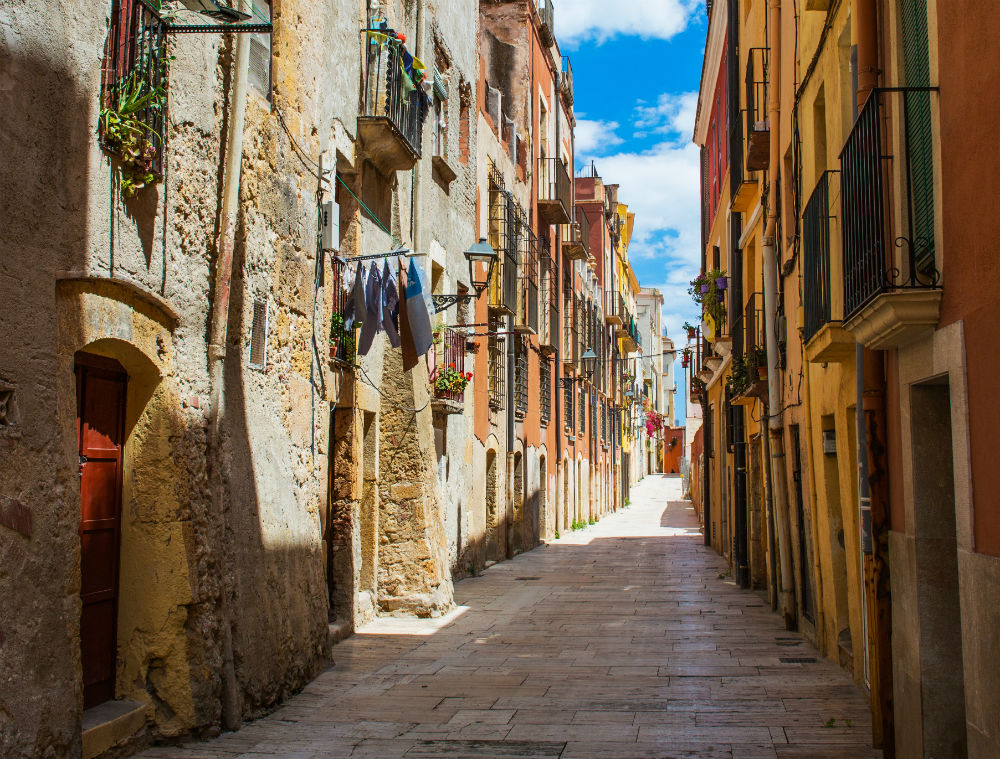
Join the conversation in our comments section below. Share your own views and experience and if you have a question or suggestion for our journalists then email us at [email protected].
Please keep comments civil, constructive and on topic – and make sure to read our terms of use before getting involved.
Please log in here to leave a comment.